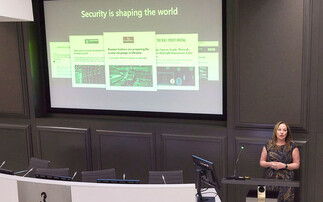Damning reports be damned! Theresa May to force through the new Snoopers' Charter
The Investigatory Powers Bill is to be introduced to Parliament tomorrow despite a string of damning reports since the turn of the year suggesting that the Bill was flawed. The Bill has also drawn ...
To continue reading this article...
Join Computing
- Unlimited access to real-time news, analysis and opinion from the technology industry
- Receive important and breaking news in our daily newsletter
- Be the first to hear about our events and awards programmes
- Join live member only interviews with IT leaders at the ‘IT Lounge’; your chance to ask your burning tech questions and have them answered
- Access to the Computing Delta hub providing market intelligence and research
- Receive our members-only newsletter with exclusive opinion pieces from senior IT Leaders



















